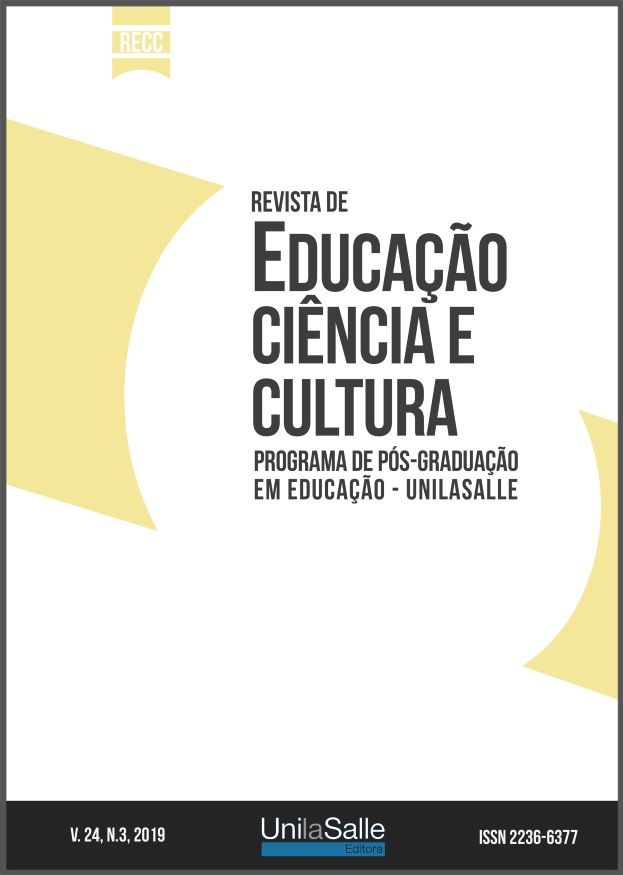Relationships between “gender ideology” and harassment: the power of discourse in the constitution of behaviors
DOI:
https://doi.org/10.18316/recc.v24i3.5598Keywords:
Education, Gender Ideology, Harassment.Abstract
This article integrates research at the Masters level that seeks to bring elements to discussion about currents of thought that feed gender discourses, named gender ideology, whether conservative or liberal. It aims to analyze i) constitutive discourses of sexual harassment practices, in the exercise of what some institutionalized subjectivities call autonomy and ii) discourses that foster and formulate the trained use the term gender ideology. Inspired by the Foucaultian theoretical framework, which defines current governmentality and confers ownership to discursive analyzes, this article as a research problem: how is the Brazilian subjectivity, male or female, that claims the power of the normative family and does not understand itself contradiction in allowing, encouraging or harassing? We sought the conditions of possibility that give rise to conservative discourses and at the same time generate a proper environment for discussions about sexual harassment. The article points to the term gender ideology of Catholic origin instituted in neoliberal society. It has as analytical corpus a omparative between philosophical questions of current works of media, used for sensitization, and the recent norms of the teaching legislations focused on thethemes of gender and sexuality, with emphasis on the Escola Sem Partido movement and its proposition regarding the ideology of gender. An investment was made to try to understand, in current historicity, support points that allowed the constitution of subjectivities engendered in sexual harassment behaviors and a complex fear for gender education and sexuality given in Brazilian schools. The paper concludes that the government mechanism that can raise awareness against the practice of sexual harassment is not the suppression of sex education, but an effective education for sexuality and gender.
Downloads
Published
Issue
Section
License
Authors must submit their manuscripts to be published in this journal agree with the following terms:Authors maintain the copy rights and concede to the journal the right of first publication, with the paper simultaneously licensed under the License Creative Commons attribution that permits the sharing of the paper with recognition of authorship and initial publication in this journal.
Since the articles are presented in this journal of public access, they are of free use, with their own attributions for educational and non-commercial purposes.
The Periodic Journal of Education, Science and Culture in http://www.revistas.unilasalle.edu.br/index.php/Educacao was licensed with a Creative Commons - Attribution - Noncommercial 3.0 Not Adapted.


